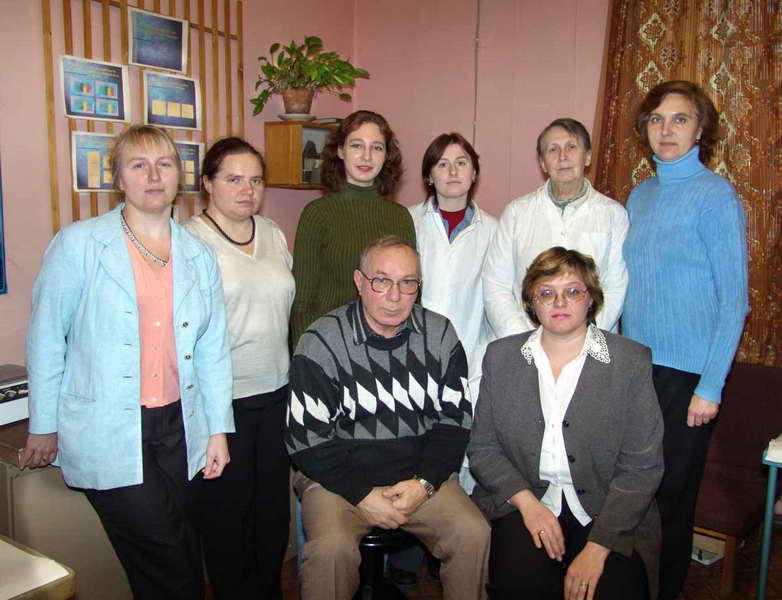The Laboratory was founded on the base of two Laboratories founded at the Institute in 1952 – Laboratory of pathology of human endocrine system (Head – Academician of the USSR Academyof Medical Sciences V.G. Baranov) and Laboratory of physiology of endocrine system (head - the Corresponding Member of the USSR Academy of Medical Sciences E. N. Speranskaya). The Laboratory headed by V.G. Baranov studied problems of endocrine regulation of human metabolism and reproductive functions. Laboratory of physiology of endocrine system headed by the I.P. Pavlov's pupil E.N. Speranskaya mainly studied role of the central regulation of endocrine functions and effects of hormones of peripheral endocrine glands on brain activity. In 1965 these Laboratories were merged in Laboratory of physiology and pathology of the human endocrine system, In 1979 this Laboratory was headed by E.N. Speranskaya's pupil, Honored Scientist of the Russian Federation, Prof. V. G. Shalyapina tion of adaptational functions.
Initially, the Laboratory preserved clinical direction of investigations, mainly on hormonal regulation of reproductive functions. In the 1980s there were actively studied problems of hormonal regulation of vascular tone and of interaction of catecholamines and corticosteroids. A new concept was developed of changes of the tissue receptor sensitivity as the primary cause of many hormonal and behavioral disturbances. Radioimmune methods of determination of steroid hormones and catecholamines were introduced into practice. Since 1990 the main problem of the laboratory has become study of neuroendocrine regulation of adaptive behavior – the most important aspect of physiology of the higher nervous activity and psychoneuroendocrinology. In 1995, the Laboratory was renamed Laboratory of neuroendocrinology. Since 2005 the Laboratory is headed by Biological Sciences Doctor N. E. Ordyan.

At present the experimental work at the Laboratory includes two directions. The first is study of role of hormones and neurohormones of the hypothalamus -pituitary-adrenocorical system (HPAS) and first of all of corticoliberin in integration of adaptive behavior and hormonal functions under stress conditions. On rats with active and passive strategy of adaptive behavior, selected at the Institute, there were established genetically determined peculiarities of organization of hormonal and behavioral stressor responses. It was also revealed that in active and passive individuals after non-controlled stress situations, different types of depression are formed, which is due to peculiarities of functional activity of hypothalamus neurosecretory centers and to a change of sensitivity of HPAS to corticoliberin. At present this concept has been used for development of new ways of therapy of post-stress psychopathologies.
The second direction deals with development of the problem of phenotypical modification of stress-reactivity and adaptive behavior at « critical » periods of ontogenesis. There is performed a study of effect of psychoemotional stresses of pregnant animals on adaptive abilities of their offspring as well as a search for neuroendocrine mechanisms of action of various stressors on developing brain. This direction is important, taking into account its direct connection with the problem of deformation of behavior in individuals whose mothers experienced stress during pregnancy.
The Laboratory also studies involvement of processes of peroxidation of brain lipids and proteins in changes of neuroendocrine regulation of adaptive behavior as a result of action of stress at various stages of ontogenesis. |